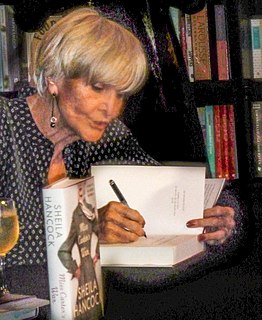A Quote by Veronica Roth
I started writing because I decided I was too old to play pretend in the backyard. Then I found that I could create those imaginary worlds on the page.
Related Quotes
Even the very youngest children already are perfectly able to discriminate between the imaginary and the real, whether in books or movies or in their own pretend play. Children with the most elaborate and beloved imaginary friends will gently remind overenthusiastic adults that these companions are, after all, just pretend.
I started typing diary in, I don't know, 1978 or '79, but then the computer changed that a lot. Because with the computer if you were writing and you realized you had three sentences in a row that started with the word "he," you could fix that right up, whereas on a typewriter you'd think, "Well, I'm not going to change the whole page. It's my diary." So that made a difference.
I started piano like my sisters. After one year or two, I didn't like it anymore. Then, because I like trumpet, I played the cornet. When you are 7, you can't play trumpet - you play cornet. And something didn't go well. The teacher was too hard. Too rough. Suddenly, there was this instrument, the flute, that I could immediately play.
It was probably 10 at night when I started to read Donnie Darko. I get in bed and read the first page, and I go, "Hmmm. That's interesting." Second page, "Wow." By the fourth page, my heart started to beat, and I knew. It makes me cry, because I knew I had found a classic film. You just know when you get certain material.
When I was a kid I loved to read, but I didn't write and I didn't create imaginary worlds. So, if one student walks away thinking, "She's obviously just an ordinary person, yet she gets to make her living doing what she wants to do. Maybe that applies to me, too," then I feel like my time has been well spent.
I started writing because I wanted to write scripts, but I wasn't very good at it. Then I started writing short stories, sort of as treatments for the film scripts, and I found I enjoyed writing short stories far more than I enjoyed writing film scripts. Then the short stories got longer and longer and suddenly, I had novels.
If you do a little bit of looking at books with your children and inspire them to be curious about the pictures and ... what the word means, but don't get into very structured systematic teaching at too early an age, and you also interact emotionally and have fun with pretend play ... then you have the best of both worlds.





































